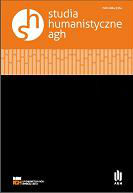Prospołeczna , partycypacyjna i „wspólnotowa” archeologia bliskiej przeszłości jako sposób na nadawanie sensu trwaniu (ludzi i rzeczy) oraz jako antidotum na niedostatki wiedzy i trywializację przeszłości
SOCIAL, PARTICIPATORY AND “COMMUNITY” ARCHEOLOGY OF RECENT PAST AS A WAY OF CONSTRUING THE MEANING OF SUBSISTENCE (OF PEOPlE AND THINGS)
AND AN ANTIDOTE TO DEFICIENCIES OF KNOWlEDGE TRANSVITALISATION OF THE PAST
Author(s): Anna ZalewskaSubject(s): History, Philosophy, Social Sciences, Archaeology
Published by: Wydawnictwa AGH
Keywords: processes of the socialization of archaeology; social circulation of archaeological knowledge; archaeology of the recent (close) past
Summary/Abstract: in an attempt to demonstrate the value and speci city of the archaeology of the close past (which only to some extent corresponds to determinations already functioning in the scienti c discourse, such as the archaeo logy of modernity, historical archaeology, or the archaeology of us), I highlight in this article the areas where archaeology somewhat naturally intertwines with anthropological and sociological re ection. Beside several observations pertaining to general archaeological theory i provide some insights into revealing the entanglement between people and things and dependence of people on things. Subsequently, i present some arguments that archaeology (seen simultaneously as the way of obtaining the thorough knowledge of the dis- tant and near past and as the social practice) is fundamentally tied to the present. my observations in terms of the relations between society and archaeology have been inspired by so-called community archaeology, whose premise is to methodologically encourage its treatment as a directive, also in the Polish context. In the subsequent part of the article, as the exempli cation of theoretical assumptions, the authoring program titled Roadside Lessons of History is presented. Trough the implementation of that program I am trying to prove social usefulness and ef cacy of material remains of the past, and of archeology. i also confront particular social contexts in which the material remains of the Great War function; of which one (the region of Rawka and Bzura rivers) is characterised by the fact that the relatively close proximity of the material remains is only really a matter of chronology; whereas in the other (flanders fields in Belgium), aside from the ‘youth’ of the record, this closeness/proximity is also a matter of various processes that deepen the connection between the present and the past. finally, in my conclusions i re ect on the validity of treating the social circulation of archaeological knowledge as an integral element of the archaeological practice itself, in a process which i propose to describe as socialisation of archaeology within which the signi cant role is played among other, by the podepositional processes.
Journal: Studia Humanistyczne AGH
- Issue Year: 13/2014
- Issue No: 2
- Page Range: 19-39
- Page Count: 21
- Language: Polish

